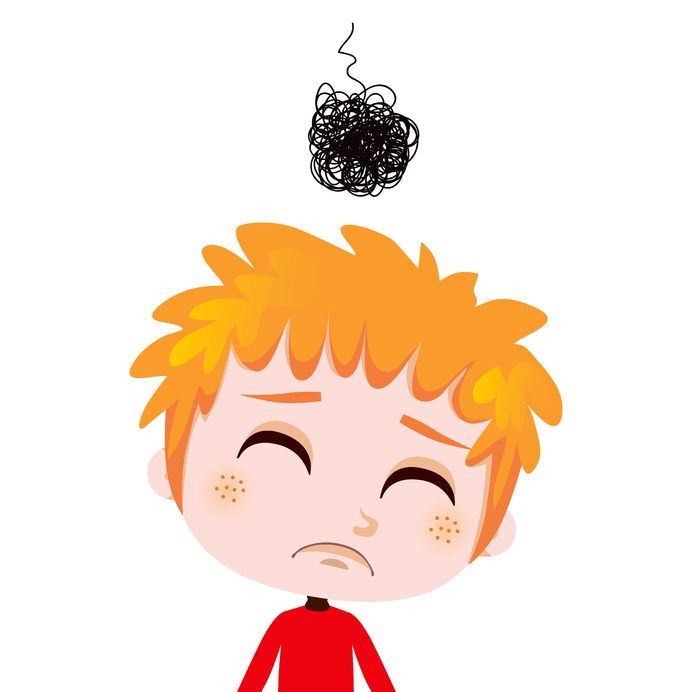
Table of Contents
Last Updated on
Anxiety is a state of mind triggered by several factors.
It is a condition affecting mental health that is caused by illnesses or diseases such as hypothyroidism. Lack of iodine is one of the causes that lead to hypothyroidism. Stress, pregnancy, use of certain lithium based anti-depressants can also cause hypothyroid. Thyroid disorders are also caused due to hormonal, emotional and physical stress.
In this post, we will see about the relationship between hypothyroidism and anxiety.
How Hypothyroidism Triggers Anxiety
Thyroid hormone is able to exert direct control over several major neurotransmitters including norepinephrine, serotonin and GABA receptors. In fact, the hormone is involved in creation of these neurotransmitters.
In case of thyroid disorder, the neurotransmitters do not function properly resulting in anxiety and panic attacks. Physical symptoms found in hypothyroidism further increases anxiety, which is not due to the hormone defect, but by the fear triggered by the symptoms.
Further as mentioned before, stress is one of the triggers in hypothyroidism. So the anxiety may not be caused by hypothyroidism, but the other way round in some percentage of cases.
However you need to note that panic attacks and anxiety are seen more prevalently in hyperthyroidism, which is the condition where excessive amount of thyroid hormone is secreted. In hypothyroidism, the most common symptoms may be fatigue and depression instead of anxiety.
However anxiety is also reported in hypothyroidism.
Identifying anxiety due to thyroid dysfunction
If your thyroid is functioning normally, the anxiety may not be due to your thyroid. It may be due to some other causes. Even if thyroid disorders are hereditary in your family, when your thyroid is normal, the anxiety may be due to other factors.
The best way to identify thyroid related anxiety is to check the symptoms you have. Thyroid disorders have symptoms such as brittle fingernails, cold intolerance, muscle cramping, weight gain, low heart rate, high cholesterol and fatigue.In many cases of anxiety, mental health disorder is the main causative factor rather than your thyroid.
If the anxiety is due to thyroid disorder, treating the thyroid condition will help in alleviating the anxiety. However together with thyroid medications, you should also consider mental health management. Anxiety due to thyroid condition can also be relieved using medications for mental health. But this will provide only temporary relief and in some cases no relief at all.
When treated for mental health management with medications like beta blockers, atenolol, Ambien, benzodiazepines and other related drugs, it is possible to experience severe side effects and very little improvement in health. However when treated with thyroid hormone like cytomel, thyroid function is improved.
With proper thyroid hormone secretion mood improvement is also seen.For permanent relief, you need to consider managing the underlying thyroid condition.
A 2016 study published in Indian Journal of Endocrinology and metabolism reveals the difficulties associated with the presence of anxiety and other depressive symptoms in hypothyroid patients. The study uses Hamilton scale for measuring anxiety and depression.
The study done on 100 patients with hypothyroidism reveals that if thyroid hormone treatment is not working for hypothyroid patients, they should be checked for presence of anxiety and depression symptoms and the symptoms managed accordingly.
In case of patients who are under treatment for anxiety or depression, if the anti-anxiety or anti depressive medications do not work they should be screened for thyroid disorder. The study suggests that even in euthyroid cases use of thyroxine could alleviate the anxiety and depression.
Anxiety and Hashimoto’s Thyroiditis
Hashimoto’s thyroiditis denotes an autoimmune thyroid condition. The thyroid gland is attacked by the immune system resulting in impaired thyroid function.
During destruction of thyroid gland cells, it is possible to experience increase in hormone levels temporarily. This results in transient hyperthyroidism, which is termed as Hashitoxicosis or thyrotoxicosis. When the high level of hormones is managed by the body, the thyroid function starts to decline resulting in hypothyroidism, which causes depression and anxiety.
A 2004 study published in BMC psychiatry suggests that people with thyroid autoimmunity are at increased risk of anxiety and mood related disorders. It indicates that both conditions are caused by the same aberrancy present in the immuno-endocrinal center, which is difficult to correct.
Anxiety in thyroid cancer patients with hypothyroidism (short term)
A 2005 study on thyroid cancer patients indicate anxiety is prevalent in hypothyroidism induced by thyroid cancer therapy and has to be considered in better health related life quality of the patients. The study recommends giving due attention to dealing with the anxiety to restore quality of life.
Final takeaway
To get relief from symptoms of anxiety and also the underlying condition which may trigger it, you need to diagnose the causative factors.
If you suspect your anxiety is due to malfunction of thyroid, you need to analyze your personal and family medical history, levels of TSH, T3 and T4 and test the level of TPO (Thyroid peroxidase) and TSI (Thyroid stimulating immunoglobulin). Reflex test also helps to diagnose hyperthyroidism.
Thus the various tests and analysis can help you understand the anxiety disorder and get the right treatment for your condition. In a majority of cases improvement of thyroid malfunction can help relieve anxiety and overall health condition too.
